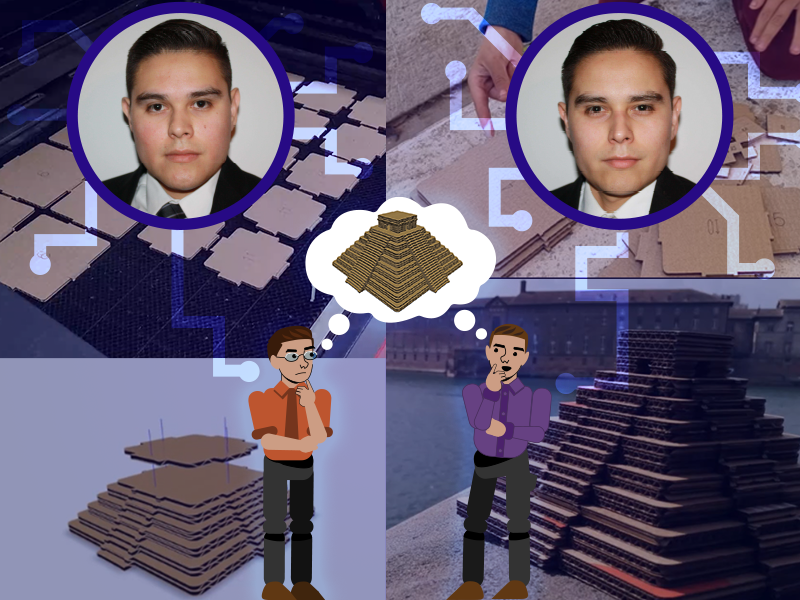
The Research problem
One of the most common causes of school dropout is the lack of motivation due to academic strategies. Students drop out of school, which has a negative impact on their personal lives, their quality of life, opportunity taking, and mental health. This increases social inequality and represents a huge loss of human potential.
We provide an interactive learning tool that complements the lessons of the school syllabus. The product consists of low-cost 3D assembling models made with layers of sustainable and recycled materials. The manufacturing process takes advantage of the versatility and worldwide use of laser cutting technology to provide attractive teaching instruments. Additionally, we propose to develop a digital platform with Artificial Intelligence (AI) tools related to a specific model, encouraging students to keep learning. Henceforth, we seek to evaluate the impact that this learning tool has on the student’s skills development.
Research Design
In relation to the 2030 Agenda for the Sustainable Development Goals presented by the United Nations (UN) in 2015, this proposal focuses directly on the development of the goals related to the objectives of Quality Education, Reduction of Inequalities, and Responsible Production and Consumption, which correspond to goals 4, 10 and 12 respectively. Based on this 2030 Agenda we propose the following questions:
- By using this interactive learning tool, do we contribute to the development of learning outcomes at primary and secondary level education?
- With this kit, do we empower and promote the social, economic, and political inclusion of the students?
- During the learning activities, do we reduce promotion of the waste generation?
Members of the team have previously worked on research topics related to social and inclusive education, how science works, Makerspaces, STEAM (science, technology, engineering, arts, maths) education, Big Data and development of cost effective kits. Hence, the program team will be led and constituted as follows:
Tecnológico de Monterrey: Design, develop and implement cost effective kits and provide the generative AI digital platform.
University of York: Provide a network of contacts to find interactive potential implementation sites.
University of Sheffield: Find the implementation spaces for the project and supervise the implementation of the activities according to the teacher’s guidance.
University of Ghana: Design the program evaluation and provide statistical analyses in Big Data Learning Analytics.
Project Objectives
The team will seek to disseminate the findings, mainly in the European Science Education Research Association (ESERA) 2025 Conference.
Additionally, based on the implementation of activities carried out in Sheffield, the research team aims to replicate the activities in schools, libraries, and museums in Ghana. Hence, the findings of two different regions can be compared. Promoting the WUN Research Development Fund (RDF) objective: to foster research collaborations across the network.